Evergreen Trees Michigan: 9 Best for Privacy, Style and More
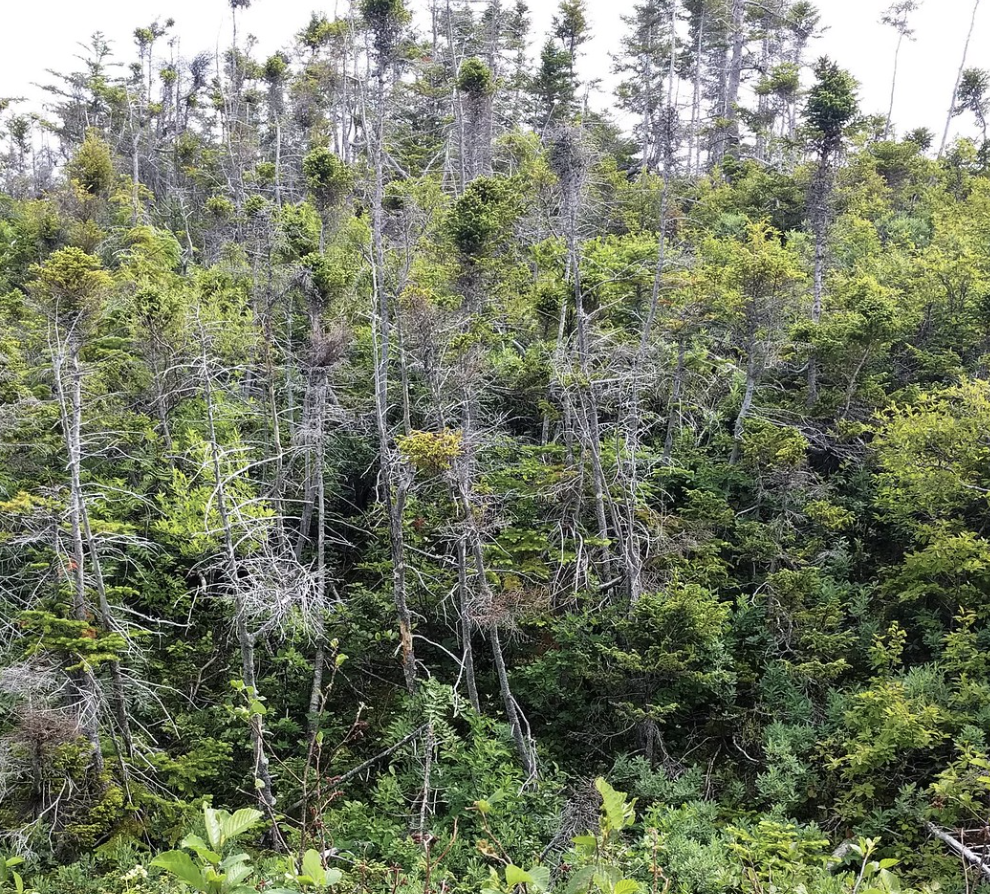
Evergreen trees retain foliage throughout the year, providing a beautiful and unique landscape for Michigan residents to enjoy. These evergreen trees are perfect for creating privacy in your backyard or landscaping.
Michigan has plenty of evergreen trees, from pines and spruces to fir trees and yews. The state also has several types of cedars, junipers, and cypresses that make for a lovely, fragrant addition to any garden.
Depending on your landscaping needs, you can use these trees to create privacy screens and windbreaks, provide shade, or add an aesthetically pleasing touch to your property.
Table of Contents
- The Best Evergreen Trees in Michigan (To Plant or Appreciate)
- Juniper (Juniperus)
- Eastern Hemlock (Tsuga canadensis)
- Eastern Red Cedar (Juniperus virginiana)
- Black Spruce (Picea mariana)
- Leyland Cypress (Cupressus × leylandii)
- Green Giant Arborvitae (Thuja standishii x plicata ‘green Giant’)
- Norway Spruce (Picea abies)
- Japanese Yew (Taxus cuspidata)
-
Eastern White Pine
(Pinus strobus)
- Final Say on the Beautiful Evergreens of Michigan
The Best Evergreen Trees in Michigan (To Plant or Appreciate)
Michigan has humid, warm summers and cold winters. Meanwhile, the Great Lakes moderate temperatures and provide the ideal climate for many species of evergreen trees to grow.
The Michigan soils range from sandy to clayey, differing from one region to another. These soil types determine which evergreen trees will thrive in the area.
Moreover, evergreen trees are a permanent part of the landscape, making them perfect for year-round enjoyment or providing shade during the peak summer.
Here are some evergreen trees that grow in Michigan.
Juniper (Juniperus)
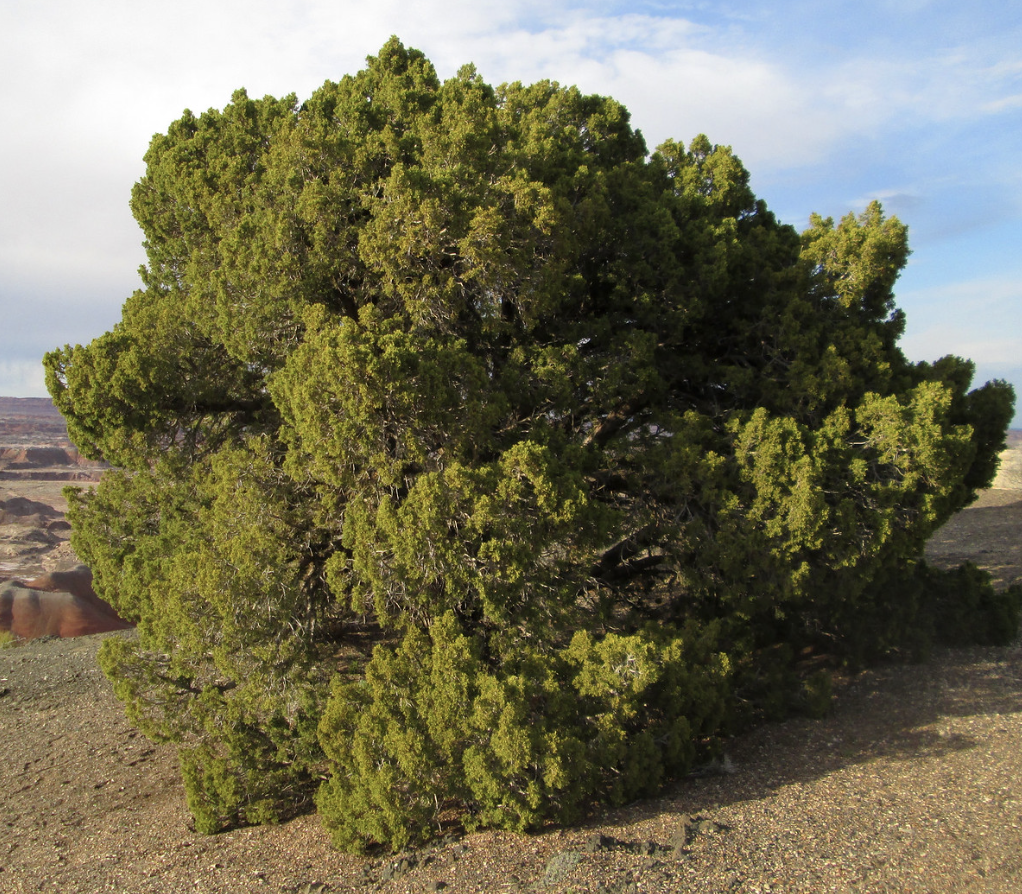
Photo Credit: Flickr
Other Common Names: Ginny, Ginerva, Ginepro
Growing Zones: 3 - 9
Average Mature Height: 4 in. to 50 ft.
Juniper trees are coniferous evergreen with a pyramidal or columnar shape and grayish-green, needle-like foliage. Over 50 species of juniper trees can be found growing in a wide variety of habitats across much of North America, Europe, and Asia.
Junipers can grow in dry to wet soil, and most species tolerate drought. Besides being attractive landscape trees, some juniper species are used for
medicinal purposes and to produce essential oils. Junipers also provide food and shelter for many birds, animals, and insects.
Eastern Hemlock (Tsuga canadensis)
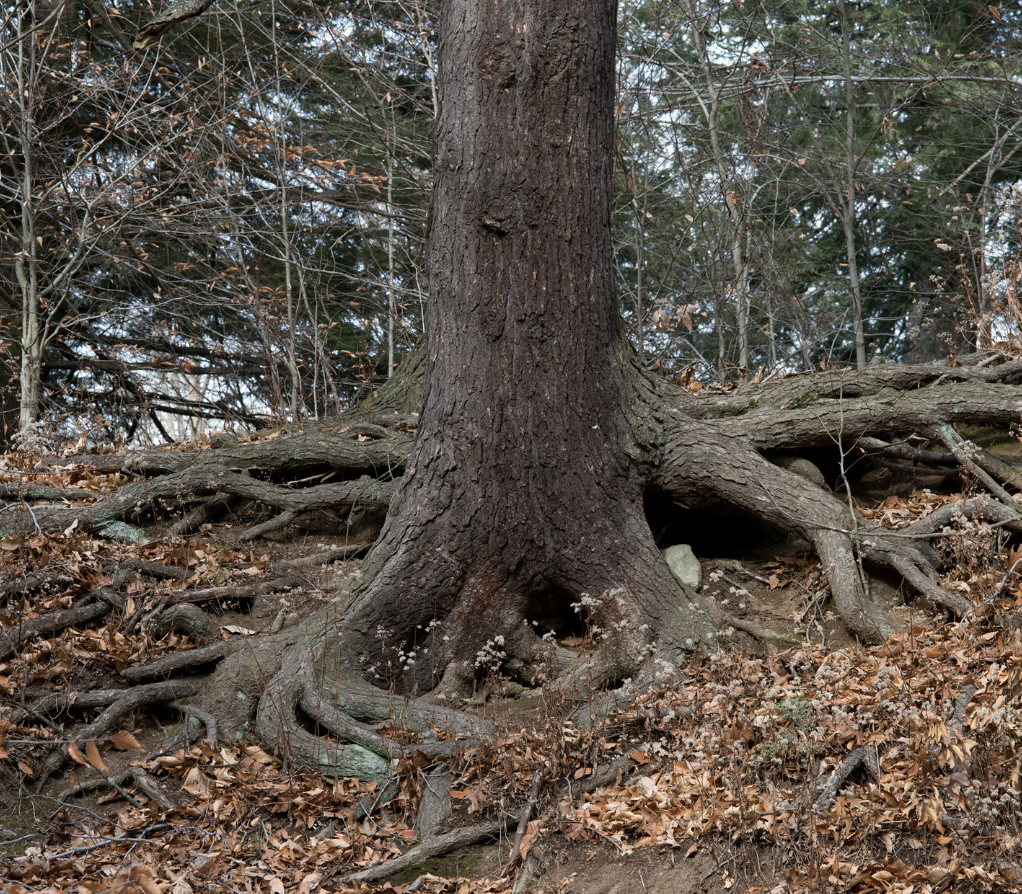
Photo Credit: Plant Image Library
Other Common Names: Sweet locust
Growing Zones: 3 - 7
Average Mature Height: 60 - 100 ft.
The Eastern hemlock or Tsuga canadensis is a coniferous tree native to eastern North America. It has a pyramidal shape, with its branches growing outward in a fan shape. The bark is reddish-brown and scaly, with short needles that are usually dark green.
The cones are oblong and yellowish-brown. Although the Eastern hemlock prefers moist, well-drained soils in partial shade, it can tolerate full sun if the soil is kept moist.
Eastern Red Cedar (Juniperus virginiana)
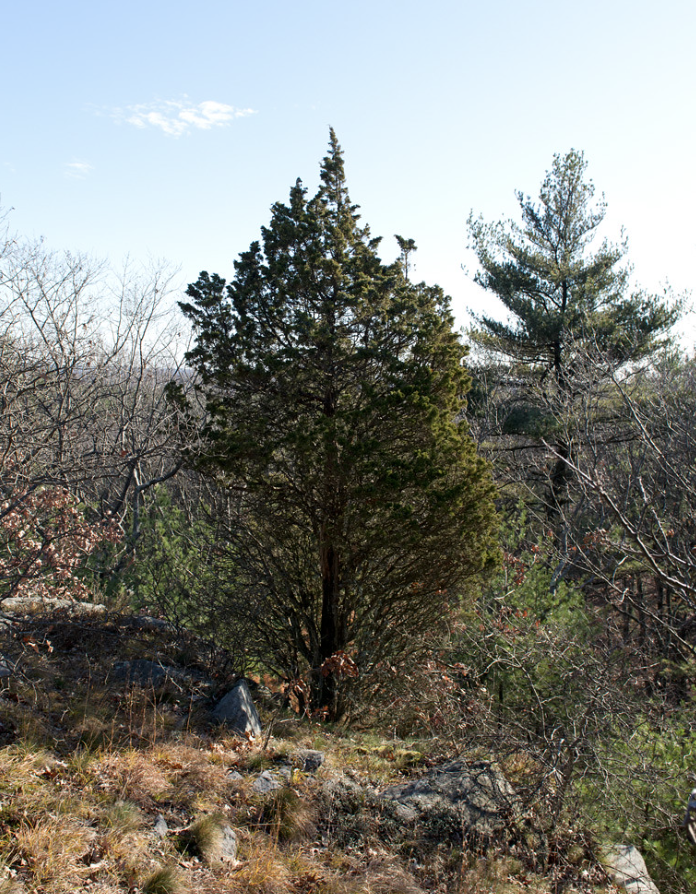
Photo Credit: Plant Image Library
Other Common Names: Eastern redcedar, red cedar, Virginian juniper, eastern juniper, red juniper
Growing Zones: 2 - 9
Average Mature Height: 40 to 50 ft.
The Eastern Red Cedar typically grows as a small tree with broad, spreading branches and narrow, upright crowns. It is a popular choice for windbreaks and privacy screens. The leaves are evergreen and arranged in pairs, highly fragrant when crushed or bruised.
They are scale-like, deep green in color, and often tinged with purple. The bark is reddish-brown and deeply fissured.
Black Spruce (Picea mariana)

Photo Credit: J. Brew
Other Common Names: Bog spruce
Growing Zones: 2 - 6
Average Mature Height: 30 to 50 ft.
The Black Spruce is an evergreen coniferous tree in the Pinaceae family. It is native to northern North America, growing primarily in boreal forests across Canada and parts of the northern United States.
It is a small to medium-sized tree growing up to 50 feet tall or more with a trunk diameter of up to 1 foot. It has a conical shape with a broadly rounded crown and
horizontal branches.
Leyland Cypress (Cupressus × leylandii)
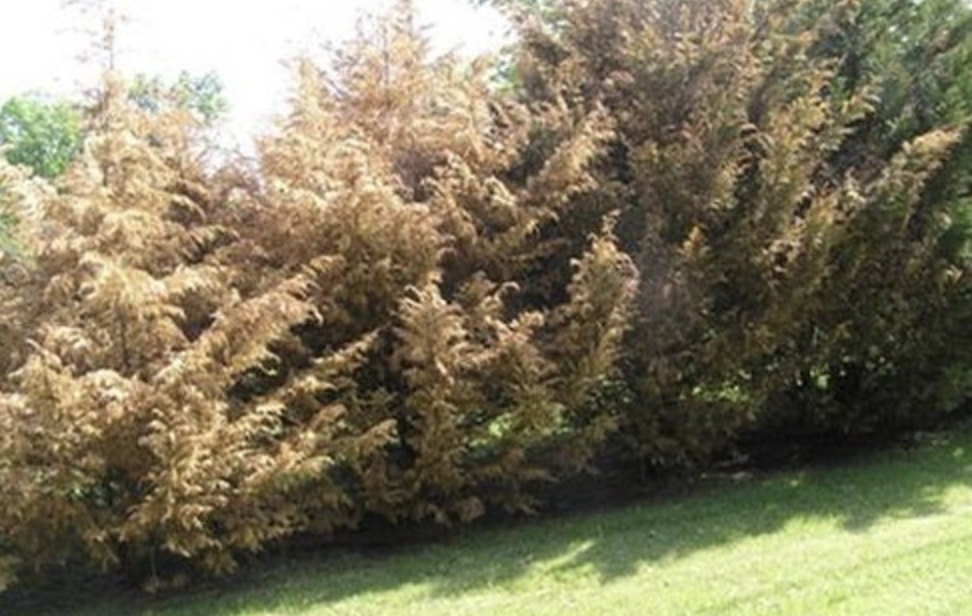
Other Common Names: Leylandii
Growing Zones: 6 - 10
Average Mature Height: 60 to 70 ft.
The Leyland Cypress is a bi-generic hybrid, a cross between two different species of cypress trees. Its parents are the Monterey cypress and the Nootka false cypress. The resulting hybrid has a striking conical shape with glossy dark green foliage.
It is incredibly
fast growing evergreen tree and will reach its mature height in as little as 10 years with proper care. The Leyland Cypress is an excellent choice for screening purposes, as its dense foliage and tall stature create a great privacy screen.
Thuja Green Giant Arborvitae (Thuja standishii x plicata ‘green Giant’)
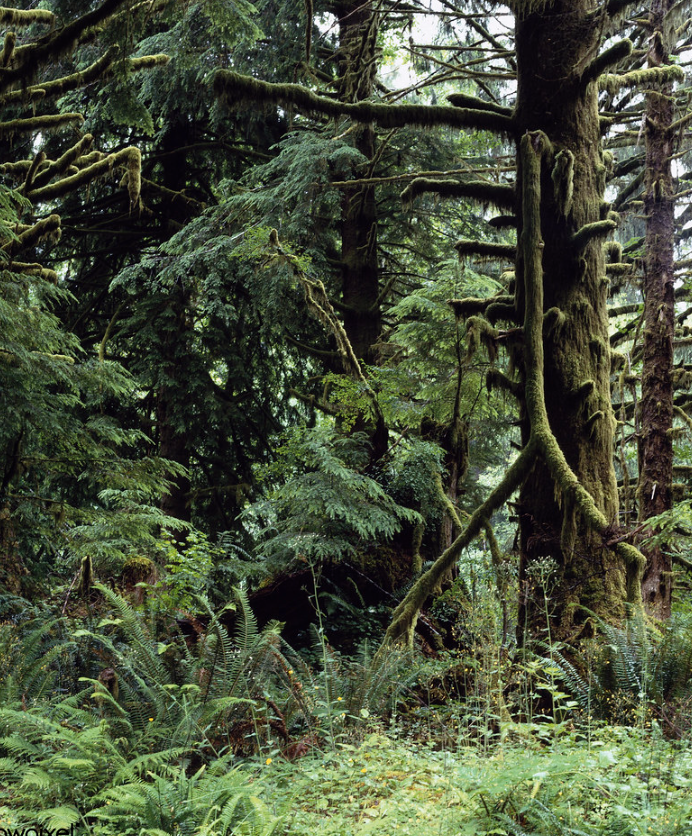
Photo Credit: Flickr
Other Common Names: Green Giant
Growing Zones: 5 to 8
Average Mature Height: 50 to 60 ft.
Commonly known as the Green Giant Arborvitae, this evergreen tree is a hybrid cross between the Western Red Cedar and Japanese Thuja. It has vibrant green foliage that typically turns more yellowish-green in the winter months.
The tree has qualities of both its parent trees, with the fast growth rate of the Western Red Cedar and the dense foliage of the Japanese Thuja. It grows in a pyramidal shape, making it an excellent choice for privacy screens and windbreaks.
Norway Spruce (Picea abies)
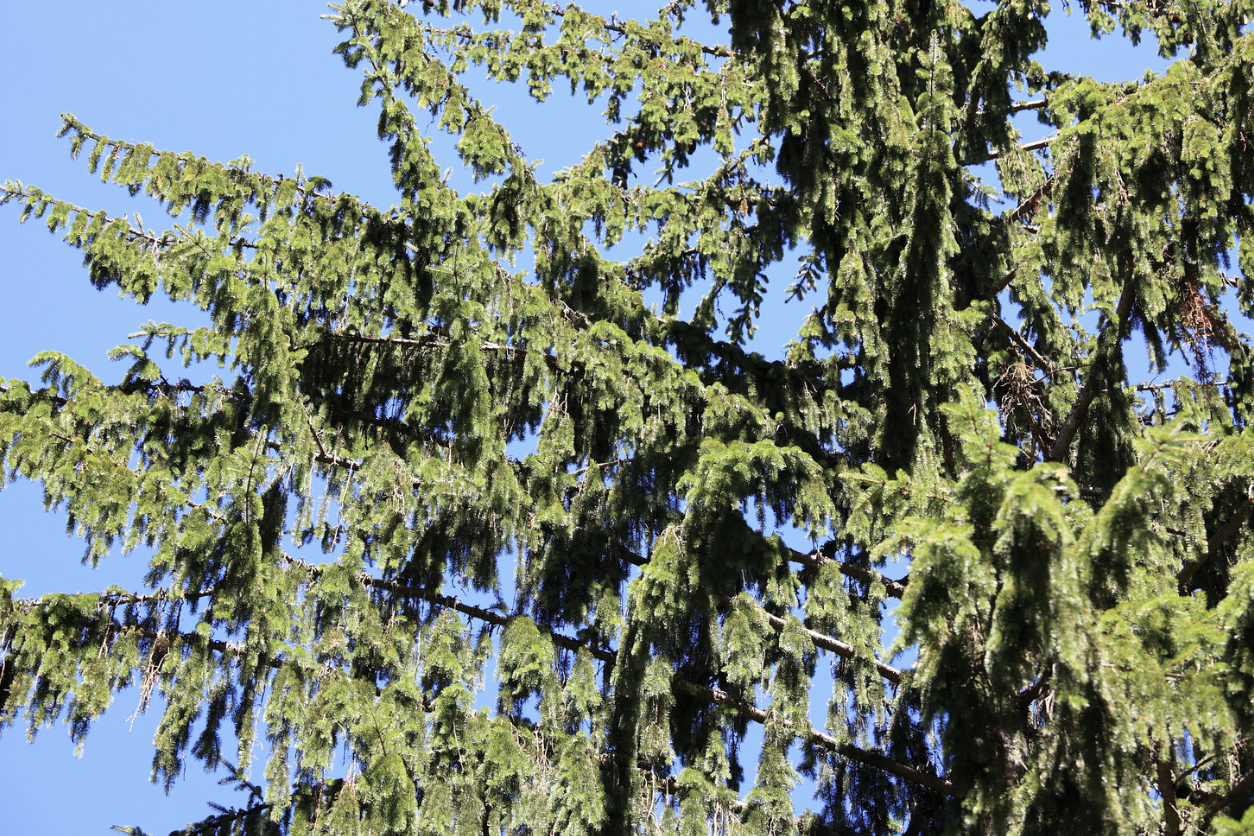
Photo Credit: Flickr
Other Common Names: European spruce
Growing Zones: 3 - 7
Average Mature Height: 40 to 60 ft.
The Norway Spruce is an evergreen coniferous tree native to Northern Europe and is one of the most widely planted trees in temperate climates. It is an important source of timber, with its wood used in construction and furniture making.
It is known for its handsome pyramidal shape and dense foliage. The Norway Spruce can grow up to 60 feet tall and 25 feet wide, with a short trunk, erect branches, and dark green needles.
These can grow up in Northern Michigan, but also across the state. They are hardy down to Zone 3 and Northern Michigan is Zone 4.
Japanese Yew (Taxus cuspidata)
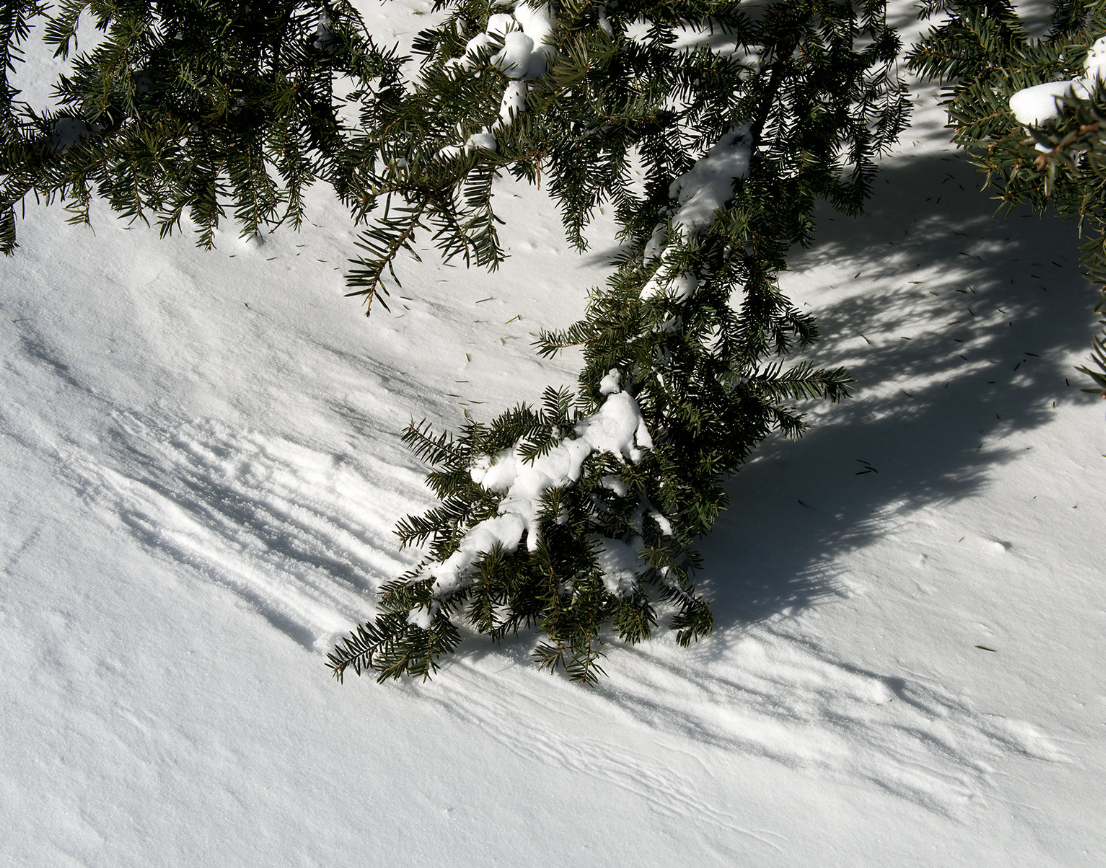
Photo Credit: Plant Image Library
Other Common Names: Spreading yew
Growing Zones: 4 - 7
Average Mature Height: Up to 30 ft. tall
The Japanese Yew, also known as onko or the spreading yew, is a dense evergreen shrub or small tree native to East Asia. It has dark-green foliage and reddish-brown bark.
The tree can reach up to 30 feet in height and prefers full sun or partial shade. It is also very tolerant of a variety of soil conditions. Since the Japanese yew is a relatively low-maintenance evergreen tree and requires little pruning or fertilizing, it's easy to grow.
Eastern White Pine (Pinus strobus)
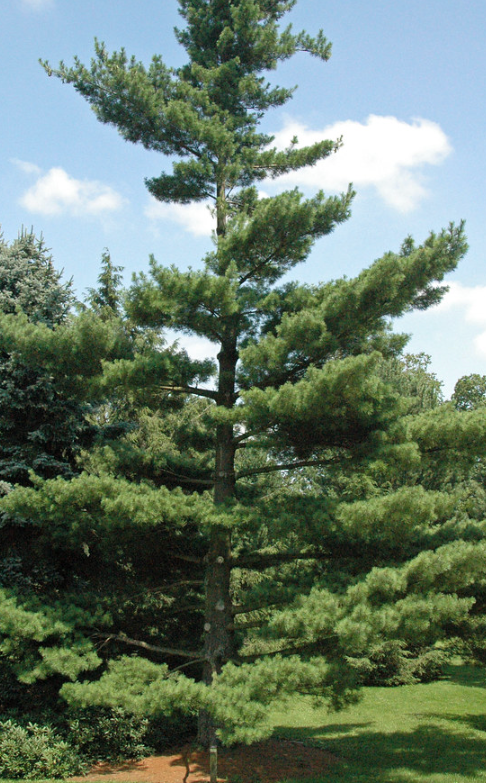
Photo Credit: J. St. John
Other Common Names: Northern white pine, white pine, Weymouth pine (British), soft pine
Growing Zones: 3 - 8
Average Mature Height: 50 to 80 ft.
The Eastern White Pine is one of the most beloved trees in North America for its graceful form and dense, long needles. The evergreen conifer boasts a pyramidal shape and grows at a moderate rate.
It is one of the tallest conifers available in the United States, typically ranging between 50 and 80 feet in height and a spread of 20 to 40 feet.
The Eastern White Pine does best in full sun but can also do well in partial shade. It adapts to different soil types and pH levels but prefers moist, well-drained soils.
You can find these up in Northern Michigan but also across the state. It has beautiful pine needles that stay green year round.
Final Say on the Beautiful Evergreens of Michigan
From their majestic beauty to their ability to provide a habitat for animals and birds, the evergreen trees in Michigan are a sight to behold.
Their attractive foliage, which ranges from lush green to vibrant yellow and blue hues makes them great ornamental trees.
Pines, fir trees, and spruces are especially common in Northern Michigan. These varieties have similar pine needles and are typically pyramidal.
Some evergreen trees also have medicinal properties and can be used in traditional medicines. Others are used as Christmas trees.
While the pines, fir trees, and spruces of Michigan are mostly coniferous, you can also grow some other varieties, such as cypress, larch, and arborvitae that will add variety to your landscape.
Keep reading...
If you liked reading about Privacy Evergreen Trees in Michigan then you'd like to learn about the best privacy trees for your front yard.
In there, we cover a wide range of species, from evergreen to deciduous trees.
Related Articles:

Christina Hernandez
Christina has done most of her research on environmental science but recently has changed her focus towards sustainable forestry. She has a passion for the outdoors and wants to spread that passion to the world.
Join our community!
Join to receive guides, insights, and the latest gardening deals!
